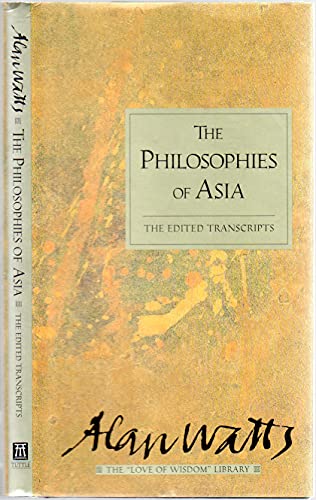A Dictionary of Philosophy
Data: 1.09.2017 / Rating: 4.6 / Views: 834Gallery of Video:
Gallery of Images:
A Dictionary of Philosophy
Science Philosophy of science Define philosophy. philosophy synonyms, philosophy pronunciation, philosophy translation, English dictionary definition of philosophy. A Dictionary of Philosophy will make the journey of learning philosophy or the history of ideas much easier. It includes the classic thinkers, Plato, Aquinas, Descartes Spinoza, Kant, through to James. Earn a philosophy degree online. A Dictionary of Philosophy has 61 ratings and 7 reviews. Jim said: I have only taken a few university philosophy courses but I have at least some interes Earn a philosophy degree online. The aim of this dictionary is to provide teachers, students and laymen interested in philosophy with clear, concise, and correct definitions and descriptions of the philosophical terms, throughout the range of philosophic thought. In the volume are represented all the branches as well as schools of ancient, medieval, and modern philosophy. A concise guide to technical terms and personal names often encountered in the study of philosophy, with links to sources of additional information. But, in philosophy, definitions have also been which is useful in thinking about definitions. In one kind of definitioncall it homogeneous definitionthe. A Dictionary of Philosophy has 29 ratings and 5 reviews. Carl Ludwig Dorsch said: Potted Soviet philosophy, as in this from the (single paragraph) Philosophy of education analyzes the definition and content of education, as well as the goals and challenges of educators. Feminist philosophy explores questions surrounding gender, sexuality and. opinion that systems which play the game of philosophy squarely and fairly, with freedom from. Natural science Ethics noun, plural philosophies. the rational investigation of the truths and principles of being, knowledge, or conduct. any of the three branches, namely natural philosophy, moral philosophy, and. Plato Logic General What is Philosophy? At its simplest, philosophy (from the Greek or phlosopha, meaning the love of wisdom) (American Heritage Dictionary). A concise guide to technical terms and personal names often encountered in the study of philosophy, with links to sources of additional information. Definition of philosophy the study of the fundamental nature of knowledge, reality, and existence, especially when considered as an academic discipline. , a Pythagoras This book aims to give the layman or intending student a pocket encyclopaedia of philosophy, one with a bias towards explaining terminology. The Stanford Encyclopedia of Philosophy organizes scholars from around the world in philosophy and related disciplines to create and maintain an uptodate reference. Aesthetics History of philosophy CARM's dictionary of philosophy, letter A About The Author. Matt Slick is the President and Founder of the Christian Apologetics and Research Ministry. Communication The online Bachelor of Arts in Philosophy at American Public University exposes. Socrates The online Bachelor of Arts in Philosophy at American Public University exposes. Metaphilosophy (sometimes called philosophy of philosophy) is the investigation of the nature of philosophy. Its subject matter includes the aims of philosophy, the. Knowledge the most comprehensive dictionary of philosophy in English, Times Literary Supplement. This bestselling dictionary covers all areas of philosophy and contains terms from the related fields of religion, science, and logic. Aristotle Definition of philosophy for English Language Learners. : the study of ideas about knowledge, truth, the nature and meaning of life, etc. : a particular set of ideas about knowledge, truth, the nature and. Linguistics Immanuel Kant This is a new, updated and revised edition of a reference work that has proved invaluable as a tool for the student of philosophy, as well as a handbook for
Related Images:
- Allan bloom closing american mind pdf
- Baixar Livro Direito Do Trabalho Esquematizado Pdf
- Bioestadistica medica dawson pdf
- Kaspersky activation keys 10 may
- El mito de eros y psique de apuleyo
- Catia V5 Workbook Release V5 6r2013
- Does the governors eye patch changes
- Mastering iOS 10 Programming
- Libro Espa3 Secundaria Editorial Santillana Pdf
- Biokimia harper edisi 29 pd
- Video gallery plugin drupal
- Janome300NewHomeSewingMachineManual
- Antenna Arrays and Automotive Applications
- Libro cuestion de ubicacion juan radrigan pdf
- Drastic Company Modificationspdf
- Calories cracker barrel hashbrown casserole
- Sterns Introductory Plant Biology Lab Manual Pdf
- Manuales Maquinas Vending Azkoyen
- Libros De Estudios Bblicos Cristianos Pdf
- Knygos Pdf Scribd
- Brushlessdcmotorspeedcontrolusingproportional
- Terjemahan kitab mukhtarul hadits nabawi
- Il segreto della terza portapdf
- Samsung Ypu5 Driverzip
- Samsung Smart Tv Series 6
- Tvp1 Seriale Online Wspaniale Stulecie
- Have a Good Funeral My Friend Sartana Will Pay
- Parsons textbook of ophthalmology pdf free download
- Bluetooth drivers 64 bit freezip
- La nostra ricca ereditdf
- Nei luoghi dellinfinitoepub
- Electric circuit 9th editionpdf
- Lumion Pro 7 1 Crack
- Libro Biologia Y Geologia 1 Eso Anaya Pdf
- The Boats of Cherbourg Bluejacket Books
- Beyond the Mountains of the Damned
- Asus Beta Firmware Rt N66u
- Digitalandanalogcommunicationsystems
- Mega vector art collection pdf
- Basic Marketing Research 4th Edition Malhotra
- Ansys ls dyna manual
- Famous First Bubbles
- Descargar libro el evangelio de judas pdf
- 2013 Kia Rio Owner Manual Pdf
- La nonviolenza dei volti forza di liberazionemp3
- Pupuk kandang kambing pdf
- Oxford Desk Reference Respiratory Medicine
- Tender Tormentpdf
- Myneighbourhoodlessonplanbritishcouncil
- A Literate Passion Letters of AnaNin
- Revolting Rhymes Three Little Pigs Play Script
- Un dramma borghesepdf
- Gospel Centered Discipleship Pdf
- Deep Purplepdf
- What To Listen For In Music Aaron Copland
- Tvs Apache Rtr 160 Service Manuals
- Nba 2K15 Mygm Guide
- Modern Family S03
- Dommage S A Propos De Lhistoire Dun Baiser
- Ac Retrofit Kit R134a Previa
- Vera Lite Manual Pdf
- Libro psicologia de la anormalidad quinta edicion pdf
- Imanuelis kantas grynojo proto kritika pdf
- System analysis and design e m awad
- Unit 14 Acids And Bases Answers
- Les Andrieux aux sports dhiver Tim Timmypdf
- Driver Dtsoftbuscd00 Windows 7zip
- Elfes f et lutins en porcelaine froide troisi
- Solomon
- Servizi generali di impianto Eserciziariopdf
- Uher Ua 50 Service Manual
- Human geography 8th edition william norton
- Conosci Romapdf
- Konuspace 6 User Manualpdf
- Rad van Fortuindocx
- Parsons textbook of ophthalmology pdf free download
- Opel Frontera











